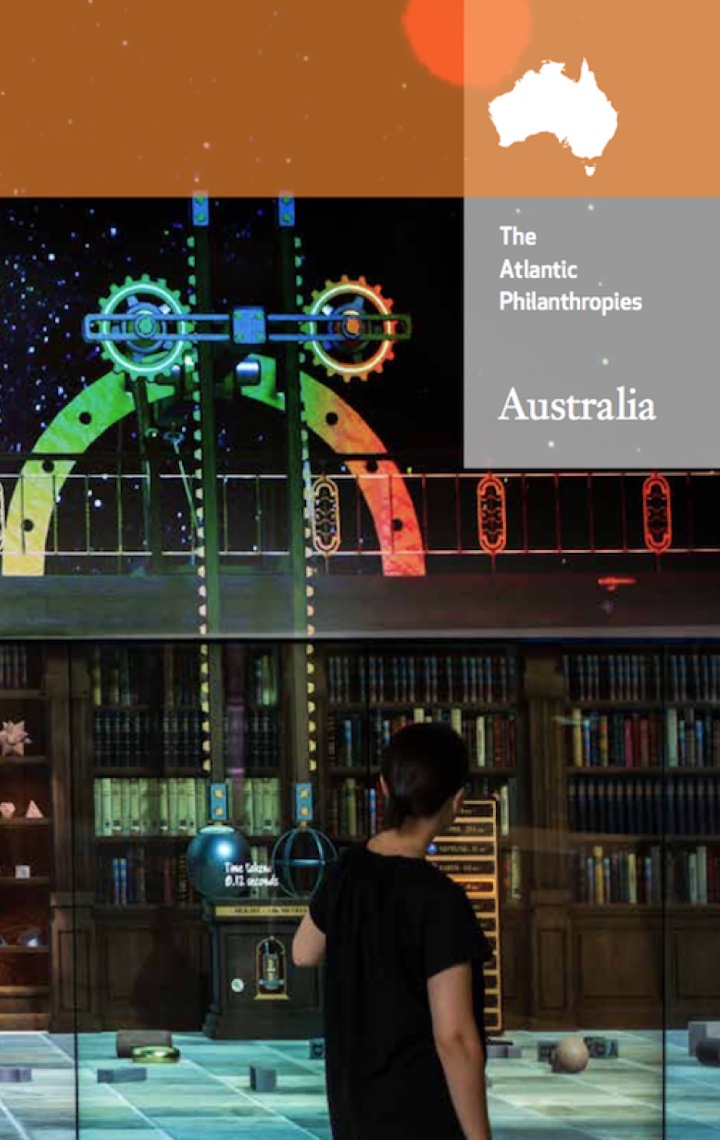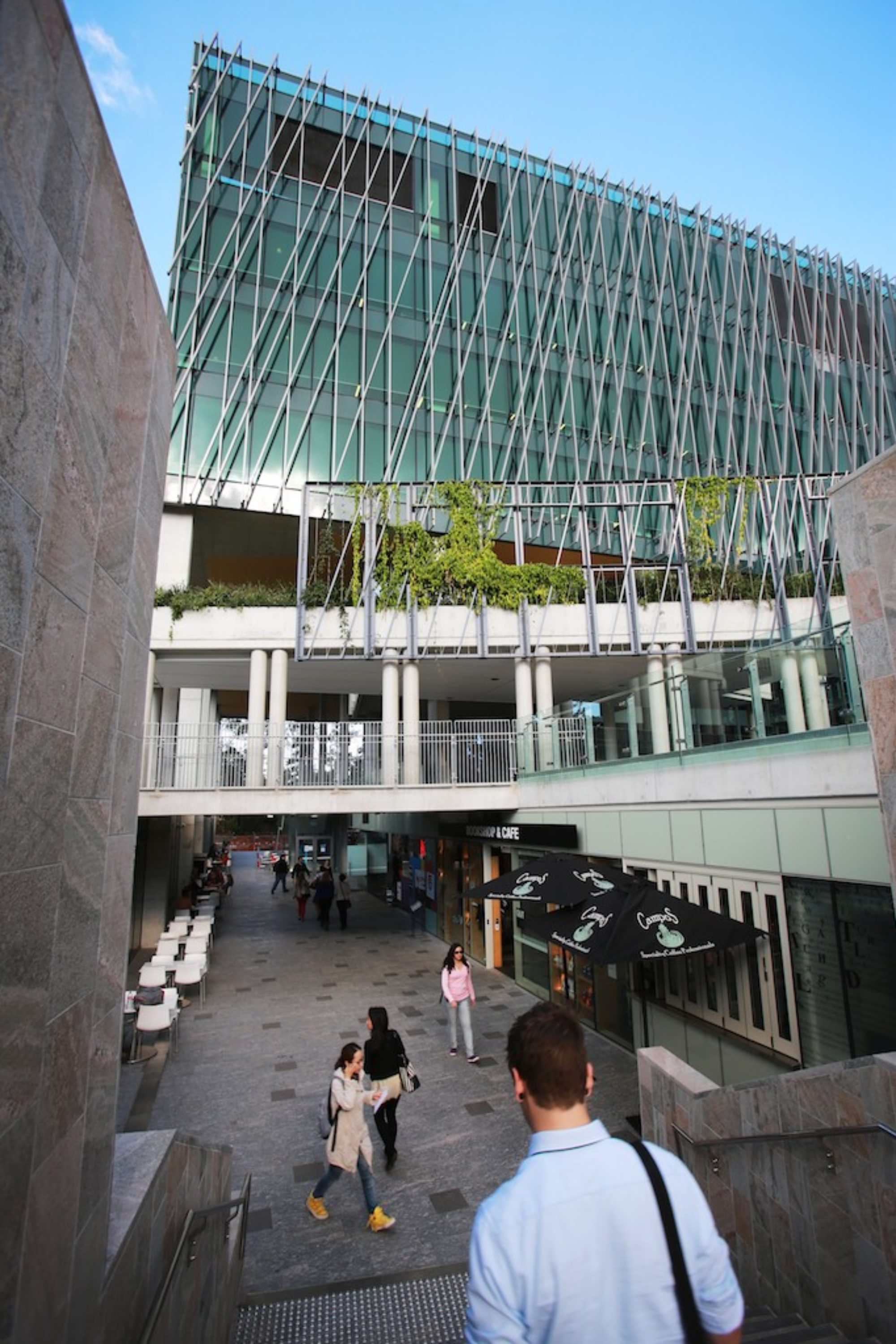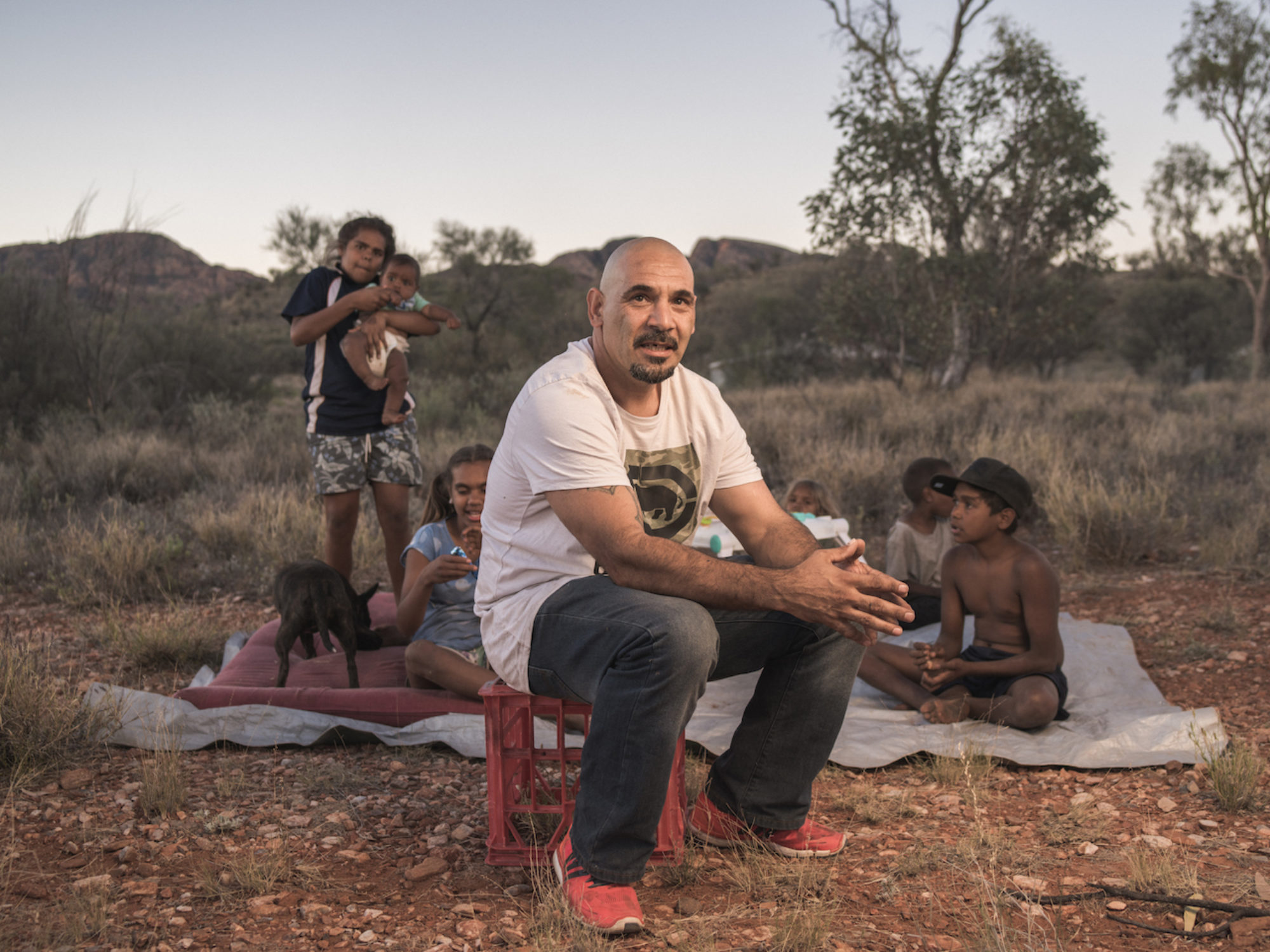Country Book Australia
About the Book
The Story.
The Impact.
The Lessons.
This book tells the story of Atlantic’s $368 million investments in Australia between 1998 and 2016 to grow the country’s biomedical research, bolster higher education, advance social equity and boost leadership capabilities in related sectors.
What the book covers:
- What attracted Atlantic Founder Chuck Feeney to Australia.
- People and groups the foundation supported.
- The foundation’s strategy for funding Australian institutions to help Viet Nam.
- What Atlantic’s grantees accomplished.
- Lessons from the work.

Summary
Between 1998 and 2016, Chuck Feeney and his foundation, The Atlantic Philanthropies, gave A$549 million in grants to grow Australia’s biomedical research, higher education, social equity and leadership capabilities.
The gifts reached 23 organizations across Queensland, Victoria, New South Wales and Tasmania, and co-funded the creation of eight new research institutes. They leveraged more than A$2 billion in matched giving from state and federal governments and other donors. They helped raise Australia to its international science and innovation standing, expanded the reach of health services to thousands of people, constructed 26 new facilities in four states, and built capacity in leadership and philanthropy so that Australia might take better advantage of its own endemic gifts and thrive into its future.
Why Australia?
Feeney had no family connection to Australia, and the country featured only minimally in his Duty Free Shoppers empire. The reason for Atlantic’s interest in Australia, gratifyingly, is Australians themselves.
The connections that he made with Australians, and the unfulfilled potential he saw through them, are at the heart of his motivation for driving Atlantic’s investments in Australia. The unique chemistry of a down-to-earth, no-frills culture, many years of friendship that the Feeneys found in their Queensland community, discovery of bold leaders with big dreams, and governments at state and federal levels amenable to co-funding, earned us an unexpected friend.
Areas of Impact
Over the 18 years that Atlantic was active in Australia, its funds and energies promoted five core areas of advancement:
- Facilitation of biomedical and health research: The “bench-to-bedside” promise of translational research spoke loudly to Feeney, who sought high human returns on capital investments. Advances in understanding of and treatments for cancers, heart disease, diabetes, stroke, dementia, childhood diseases, and infectious and sexually transmitted diseases make up only a few of the many runs Atlantic’s support has helped put on Australia’s board.
- Enhancement of educational environments: Feeney had an interest in student well-being, collaborative campus spaces and cross-faculty pollination that influenced not only the construction but also the design of Atlantic’s 12 Australian university building, including two swimming pools, a graduation hall and an art museum.
- Growth of a culture of philanthropic leadership: Among a variety of efforts to promote greater philanthropic giving in Australia, Atlantic contributed to the birth of the Australian Centre for Philanthropy and Nonprofit Studies, Philanthropy Australia and the Giving While Living networks—a short series of events at which Feeney shared his message with Australian wealth-holders.
- Capacity-building for a Viet Nam–Australia partnership: Atlantic made a suite of strategic grants to Australian institutes whose interests lay in education and health in Viet Nam. The objective was to build Australian capacity in international research and development projects, and to impart critical skills and expertise to Vietnamese changemakers.
- Addressing social inequality: In its final year of grantmaking, The Atlantic Philanthropies made its final Australian investment in 2016, creating the Atlantic Fellows for Social Equity, a program focused on addressing inequality across the Australia-Pacific region.
Timeline
Atlantic in Australia, 1998 - 2016
-
1982
The Atlantic Philanthropies are founded
-
1992
Feeney begins exploring investment opportunities in Australia; takes temporary flat in Brisbane
-
1997
The New York Times reveals Feeney as major philanthropist
-
1998
First grants to Australia (QIMR: A$20M and University of Queensland: A$10M)
-
2000
Grant to establish RMIT campus in Viet Nam
-
2001
Feeneys visit Tasmania
-
2002
Atlantic Board agrees to end all grantmaking by 2016
-
2007
Publication of Feeney biography, The Billionaire Who Wasn’t
-
2008
Establishes office in Sydney
-
2009
Makes commitment of A$102.5 million to 3 Queensland universities and medical research institutes
-
2012
Establish Giving While Living Networks in New South Wales and Tasmania
-
2012
Closes Australia office
-
2016
Last and largest grant to Australia, for Atlantic Fellows for Social Equity at The University of Melbourne: A$67M

Top Lessons
Our Top Takeaways
Atlantic’s Australian experience offers lessons for donors, funders and fundraisers.
- On giving to people: Chuck Feeney was attracted to dedicated, effective visionaries who could “think big,” and Atlantic made big bets on these individuals. Giving hinged on Feeney’s personal connection to, and faith in, the leaders at the center of each project.
- On learning in philanthropy: An entrepreneur, Feeney read and learned voraciously about the science and innovation proposed by Atlantic’s grantees; unafraid to ask questions and dive into scientific depths, he toted pages of reports and clippings around the world on his cyclonic flight path.
- On the power of teaming up: Feeney and Atlantic were drawn to opportunities for collaboration. After leveraging government contributions for almost all of its capital projects, in its later years Atlantic launched matched giving challenges aimed at enticing other private Australian donors to support these projects. This was one of the earliest examples of a co-funding strategy that is increasingly popular today.
- On the challenges of collaboration: Atlantic’s experience showed that successful partnerships between multiple stakeholders require time as much as money. “Just because it is deemed that there will be collaboration, doesn’t mean collaboration will naturally follow,” one Australian commentator noted. When Atlantic required that grantees raise a matching amount from other contributors, the fundraising mandate proved unexpectedly challenging for some grantees.
- On limited life: Atlantic’s plan to complete all grantmaking by the end of 2016 freed the foundation from ensuring that its endowment would last in perpetuity. An approach seemingly at odds with the legacy-building Private Ancillary Funds taking root in Australia, Atlantic’s commitment to investing its entire endowment during the lifetime of its founder was meant to create “accelerated impact.” As one foundation trustee said, “You’re much more likely to make a difference by doing something big right now than dribbling the money out to the end of time.”
- On giving publicly: For Australian philanthropists who struggle with the idea of giving publicly in a culture still cultivating a "tall poppy" problem, Chuck Feeney stands as reassuring evidence that humility without anonymity is possible.
- On giving to education: A number of leaders in Australia’s education sector will point to Atlantic as the model for their own “think big” campaigns. In the wake of Atlantic’s grants to Australian universities—the largest educational gifts of their time—home-grown alumni and development philanthropy has since lifted its game. A greater focus is falling on increased professionalism of university fundraising, and higher education as a smart philanthropic investment has shifted into the spotlight.
Grantee Stories
Our grantees have stories to tell.
The book includes a series of vignettes with personal stories from these grantees:
- The University of Queensland
- QIMR Berghofer Medical Research Institute
- Baker Heart and Diabetes Institute
- The University of Melbourne
- Walter and Eliza Hall Institute of Medical Research
- Royal Brisbane and Women’s Hospital
- Queensland University of Technology
- The Royal Children’s Hospital Foundation and Murdoch Childrens Research Institute
- Menzies Institute for Medical Research
- Wesley Medical Research
- Translational Research Institute
- Princess Alexandra Hospital Health Service District
- Victor Chang Cardiac Research Institute
- The Kirby Institute for Infection and Immunity in Society
Viet Nam Strategy:
- RMIT University Vietnam
- The University of Da Nang – The University of Queensland English Language Institute
- Queensland University of Technology School of Public Health and Social Work, and School of Nursing
- The Royal Children’s Hospital International
- Fred Hollows Foundation

Download
Read it now.
This book is a short account of an extraordinary and little-known chapter in Australia’s philanthropic and developmental history. It is evidence of what is possible when hard work, thoughtful contribution, and belief in good people are made the bricks and mortar of both business and living.
Download the full book (PDF) ›
Further Reading
